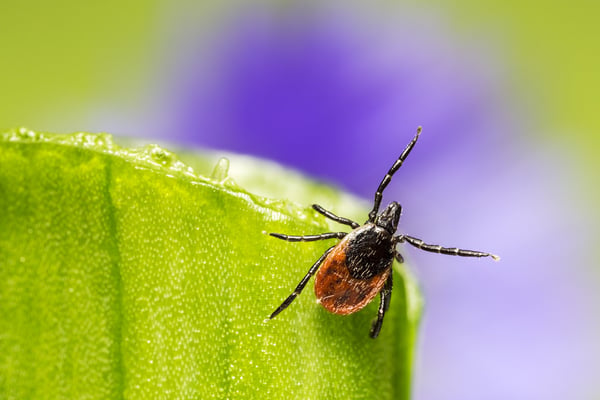Ticks in Massachusetts didn't rest much this winter, but they're about to pick up the pace. Here's how they wind up on their hosts.
It might not consistently feel true yet, but spring is here. This winter was extremely mild, so one has to wonder how rested the pests can possibly feel. Many were active all year, including ticks. Now that ticks in Massachusetts are going to be even busier (and hungrier), do you know how they find hosts and travel?

Ticks cannot fly or jump, so they rely on hitchhiking techniques. No, they don’t stand on the side of the road with their thumbs out—they simply go “questing”. Hungry ticks will climb tall grasses, weeds, or shrubs, as high as they can go, hold their front legs outstretched, and wait. When a suitable host passes by, they grab on and look for an appealing place to begin a blood meal.
Unfortunately, ticks are smart with their time management. They tend to quest where hosts are most active, such as along pathways in wooded areas and in dense vegetation around yards. To protect yourself and your pets from ticks on a mission, try to stay in the middle of nature trails, and avoid wading through grasses and weeds or otherwise coming in contact with shrubbery when spending time outdoors.
Long sleeves and pants tucked into socks are an effective way to avoid questing ticks. While you may not be able to stop them from latching to your clothing, light colored clothes help make them easier to spot. Perform regular checks on people and pets and remove attached ticks right away.
In addition to these precautions, consider a tick and mosquito program with a reputable company to keep your yard safe. At Burgess Pest, our treatment plans start at just $49, and many of our programs include common household pests in addition. Our “quest” is to Protect Your Pad from ticks and other pests with personalized, affordable plans.


